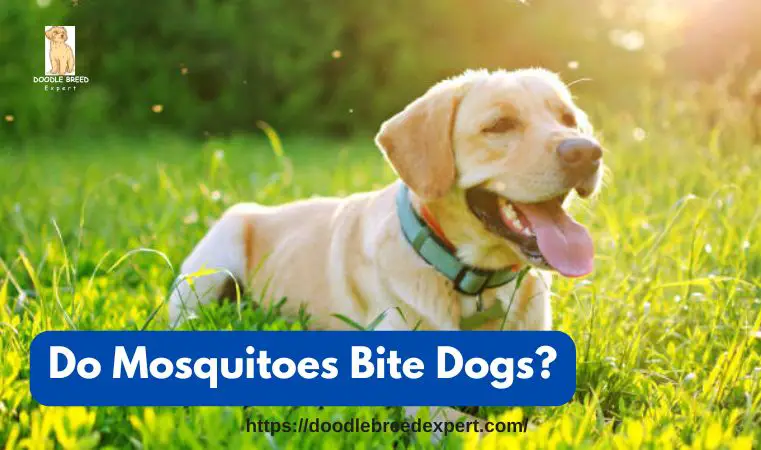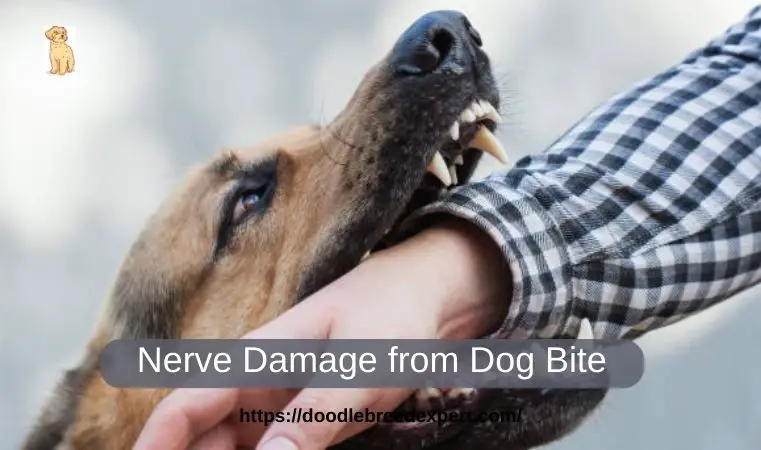Most pet owners often ask, “Do mosquitoes bite dogs?” which at most circles their heads, considering mosquitoes are known for their annoying bites. Mosquitos primarily feed on human beings but are said to be opportunistic feeders, parasites that can target our best companions in the canine family.
Awareness of possible risks and effects is a good way to be behind the dog’s protection and welfare. But without such repetitions and final going circles — sometimes so queer, implicating, here, you’ll now understand the effects of such occurrences and, therefore, get prepared in advance for the war with mosquitoes, which, as sometimes shown, can be a very dangerous annoyance capable of robbing somebody even of the good hours up to good days if performing badly their intentions.
What are Mosquito Bites?
Besides that, mosquitoes attack furless animals, furry cats, and dogs. If a pet has very thick fur, it also can’t remain without mosquito bites: the insects make their way into every furry area, like the nose or ears and bite the animal there. As to the irritants that mosquito’ bites cause in pets, these are the same as in people; many owners of those animals are concerned about the various mosquito-carried diseases, particularly heartworm.
Heartworm disease is a dog parasite infection and very rarely may affect cats as well. A specific mosquito species spreads the disease and is endemic in the United States. Thus, staying inside when the mosquitoes are out and evading disease exposure might effectively prevent heartworms.
The lifecycle of mosquitoes consists of a series of multiplication of the mosquitoes. It starts when the mature female enters the oviposition stage, and the eggs are laid near the water body. Eggs need water for hatching, although they can stay un-hatched for several months.
The larvae known as “wrigglers” live in water and take their food from its surface while moving upward to take oxygen. In the pupation stage, the adult mosquitoes emerge. The pupa is an aquatic, free-swimming, hard case and does not feed at all. The mosquito pupas take their familiar form when they hatch.
On their part, female mosquitoes are notorious pests and attack human beings with their animals, such as cats, dogs, and others, about homesteads, transmitting blood infections from one host to the other.
Generally, the mosquito cycle is around two weeks in an average period, but in a conducive breeding environment with high moisture levels, it can be as short as four days. The massive swarms characteristic of large numbers of mosquitoes always emerge in summer with the same danger of infection and biting outdoor animals that frequent wet areas or stagnant water.
Mosquitoes Can Do a Lot More to Dogs Then Bite
During the summer, mosquitoes can find you as tempting a target as your dog. Chances are the mosquitoes will also be bothering your dog. While they enjoy feasting on your dog, mosquitoes fancy going for the larger regions of your dog, such as its back and back legs, but they can bite from anywhere. A dog can itch for any number of reasons, sometimes even for no real reason. However, mosquitoes are a good place to start when wondering why a man’s best friend has a particularly itchy issue.
However, the worst about mosquitoes is not their itchy bites. They can transmit heartworm to dogs through bites. When a mosquito carrying microfilaria, mature heartworm larvae, bites your dog, it infects the worms into his blood. The worms will grow after settling in your dog’s heart for about two months. When a second-bitten dog catches the bite from an infected mosquito, it can continue the life cycle of heartworms.
They are also carriers of dangerous diseases in humans and animals like Eastern Equine Encephalitis and even West Nile virus. In addition, cases among dogs are rare, although they sometimes become victims. Among people, the cases are even fewer. Of course, this question has not yet been answered, but the great possibility that dogs can get Zika from mosquitoes exists since the disease has very little been studied. This means that animals are also in danger if mosquitoes get caught in the virus.
Symptoms of Mosquito Bites in Dogs
The clinical signs are relatively the same in many cases as mosquito bites to humans, though some animals experience much worse signs than others. The top-line discoveries of the condition include:
- It’s common to see small, raised, itchy welts at the mosquito bite site.
- Mosquitoes may bite one dog or multiple dogs, depending on their exposure.
- Besides the fact that welts become highly recognizable in short hair breeds like Greyhounds and Pit Bull Terriers, it may become difficult to tell whether a dog has mosquitoes provided it is accompanied by long hair like Huskie.
- Itching in dogs might be a result of mosquito bites. You may suspect something is wrong with your dog, probably because of the biting or licking before you see the bite.
- Typically, the itching is temporary, lasting from a few hours to a day.
They should be thoroughly reviewed by a veterinary surgeon immediately if the dog is very painful or if there are indications of secondary infection.
Overall, from a clinical perspective, mosquito lesions in dogs closely resemble those in humans.
What Type of Infection Can Dogs Get from Mosquito Bites?
Mosquitoes can carry many infections and can infect both humans and animals. The infections might include:
- Heartworm
- West Nile Virus
- Eastern Equine Encephalitis
Heartworm disease in dogs and cats is quite a concern. Accordingly, this aims to be a part and parcel way through which, once a pet owner has protected their pet, they will be protected against mosquito-borne infectious agents.
Causes of Mosquito Bites in Dogs
There can be several reasons why mosquitoes would bite a dog. Since it is not possible to get all mosquitoes killed and so kicked out of the environment, consider the following points:
- Standing water around the house breeds mosquitoes. Eliminate standing water at all costs.
- Animal water bowls or troughs: Ensure that all animal water containers for drinking are emptied and cleaned out regularly before being filled fresh with clean water to avoid mosquito breeding.
- Bird baths: Clean and change the water in bird baths frequently to prevent mosquito breeding.
- Ornamental ponds: Maintain ornamental ponds properly to prevent water stagnation and mosquito breeding.
- Untreated pool: If you have a pool, ensure it’s properly treated to prevent mosquitoes from breeding.
- Seepage from a septic tank: Address any leaks or seepage from septic tanks promptly to prevent water accumulation.
- Pooling water in a tarp cover: Ensure that tarp covers that contain water do not get filled with water, which would give a breeding place to mosquitoes.
- Broken screens: Repair or replace broken screens on windows and doors to prevent mosquitoes from entering your home.
- Night lighting – The lighting can also be yellow or LED at night, as it generally does not attract many mosquitoes.
By considering such, you help eliminate the mayhem that involves mosquito bites on your dog, let alone the transmission of diseases by mosquitoes.
What Does a Mosquito Bite on a Dog Look Like?
A mosquito bite on a dog looks almost similar to those sustained by human beings. Typically, it resembles a small bruise measuring less than one centimetre in diameter with a flat, pinkish surface. It is rare but may occur, especially for multiple bites with other biting insects, such as black flies.
The skin may scab or even ulcerate if the dog has been allowed to chew or scratch at the bite. Under usual circumstances, mosquito bites on dogs present as a small pink-grey bruise.
Are Mosquito Bites on Dogs Dangerous?
Mosquito bites are more than just painful and itchy to dogs; they may lead to the development of so-called “hot spots” and even a very severe allergic reaction, up to and including anaphylaxis.
However, the greatest danger these pests pose to your pet is disease transmission. Mosquitoes bear different types of diseases that can affect both people and animals. A female mosquito can spread the infections once during her life after feeding with the blood of several hosts.
Heartworms are one of the potential diseases that mosquitoes can be carriers of and transmit to dogs. This is when an already-infected mosquito bites a dog with larval worms transfusing from them into the dog’s blood.
The worms then multiply while in the blood before they develop in the heart to give the eventual possibility of organ damage, respiratory diseases and heart problems. Its treatment can be expensive and hazardous, making it necessary for prevention in care for your pet.
Although most conditions from mosquitoes are more serious in people than dogs, there are a few isolated cases of West Nile virus among the canine population. A dog will occasionally contract this disease through a mosquito bite, though the incidence is rare. Preventing mosquito bites is essential for safeguarding your dog’s health and safety.
Diagnosis of Mosquito Bites in Dogs
Diagnosing a mosquito bite in animals can entail a symptom that comprises the existence of the mosquito that bites, leading to brow-itching or irritation. On the other hand, it is usually hard to know the difference between heartworm-infected and non-infected bites; detection hence lies with regular check-ups or on the onset of symptoms of illness.
Existence can be found with just a blood sample, and a waiting period of six months is required to confirm any animal testing. So, it is better to begin with animal check-ups at seven months of age. Cats are not ideal hosts for heartworms; thus, the infection is rare in cats, and even the testing methods could vary in many cases. As a result, although only a small percentage of larvae may mature into adult cats, and only a small percentage of this fraction may produce larvae, even a few larvae could result in a sudden and life-threatening condition.
When a positive heartworm infection result is found on your pet, a revelatory test taking chest X-rays shows the degree of infection. To detect how much your pet is under a heartworm infection, some other diagnostic tests will be necessary, as pet insurance can become very costly very soon, so get to know about pet insurance when your animal is evidencing cases of mosquito bites or is in increasing danger.

Treatment of Mosquito Bites in Dogs
While humans can typically use insect repellents to avoid bug bites, unfortunately, these products often pose a danger to the health of a dog or cat. Aerosol repellents, particularly those with DEET, can be toxic and must never be used. Choose repellents that are well-tested and formulated for pets and people, and use them minimally and only as your veterinarian recommends. Other environmental alternatives include using citronella candles or sandalwood.
Unless such bites were to appear as if they caused serious hurt to your pet, the vet would not take any action about the bites. Otherwise, there is no intervention, and the symptoms normally subside.
Including cats, there is no medication to cure a heartworm infection. Still, as a general rule, most monthly prevention medications effectively reduce the risks and can be given to dogs or cats. The main ingredient found in the medication is usually arsenic when used on dogs suffering from heartworms acquired from mosquitoes. Still, it is not advisable for use on pets because of the potential danger the ingredient poses.
Read Also : How To Comfort a Dog with Pancreatitis
A mosquito bitten my dog companion; what Should I Do?
If your nice, sweet, cuddly dog gets bit, it’s usually cause for concern. Most dogs are allergic to mosquito saliva, so don’t be too concerned if you see a small, raised welt on your dog.
Be sure to have the dog current on its heartworm prevention; meanwhile, take precautions so that the dog does not receive more mosquito bites, such as staying out of areas where there might be lots of mosquitoes around and having the right repellents if it is safe for your dog. Bites usually heal within a day or two, sometimes with the formation of a small bruise, unless your dog has an adverse reaction or gets an infection.
Keeping your dog current on heartworm prevention medication decreases the chance of developing complications from biting to other biting complications.
Some recommended heartworm prevention products include:
Prevention of Mosquito Bites to Dogs
Below are some of the steps to be followed in ensuring your dog stays safe from mosquito bites, the diseases they bring, and general safety:
- Feeding the dog inside: Feed your dog in the house to avoid attracting mosquitoes.
- Exclude mosquitoes from the environment: Install screens on your windows and doors to prevent mosquitoes from penetrating your environment. Set up mosquito nets that can be found around the home or outdoor mosquito repelling devices, particularly around places where your dog will be.
- Use dog-friendly mosquito repellent: A special kind of mosquito repellent is developed exclusively for dogs. Contact your vet for further guidance on the appropriate product to use.
- Insecticides: Use only insecticides certified as safe for your dog and help to repel mosquitoes wherever obtainable. Let them be used only with clear directions placed by the manufacturer and any other queries placed before a veterinarian.
- Watch out when the mosquitoes are active: Afternoon sneeze times may vary between individual species, but most mosquitoes are active either in the late evening or at night. Reduce his participation in outdoor activities at such times to minimal cleanliness mosquito bites.
- Eliminate breeding grounds: Do away with any stagnant water source because mosquitoes breed in stagnant water, for example, in tires and discarded containers. Emphasize the use of fountains in ponds and bird baths to encourage water circulation and prohibit mosquitoes from breeding.
- Mosquito Population Control: A mosquito trap can reduce the number of mosquitoes in problematic yards. At least with that, mosquitoes are controlled, and the risk for your dog in terms of bites is greatly reduced.
Conclusion: Do Mosquitoes Bite Dogs?
Aspects evoked by “Do Mosquitoes Bite Dogs” result in important conversations on keeping one’s pets safe and healthy, in general, and the afflictions mosquito bites can cause. Amidst the same line of thought, through realizing the quantitative threat linked with mosquitoes, the pet owner is given the total ability to stay ahead and be responsive to their loved ones. A motive towards eliminating mosquito bites and our four-legged friends’ integrity can be realized by putting preventive measures like repellants and control of the environment in place.
Do Mosquitoes Bite Dogs? Yes, by knowing in advance and being proactive, we can reduce the associated risks and look after our pets.
References:
- Lichtensteiger, C. A., Heinz‐Taheny, K. M., Osborne, T. S., Novak, R. J., Lewis, B. A., & Firth, M. L. (2003, October 1). West Nile Virus Encephalitis and Myocarditis in Wolf and Dog. Emerging Infectious Diseases. https://doi.org/10.3201/eid0910.020617
- Lovejoy, J. (2024, January 25). Mosquito Bites on Dogs: How to Treat and Prevent. PetMD. https://www.petmd.com/dog/general-health/mosquito-bites-on-dogs
- Eastern Equine Encephalitis (EEE). (2023, August 1). School of Veterinary Medicine. https://ceh.vetmed.ucdavis.edu/health-topics/eastern-equine-encephalitis-eee
- Stott, D. (2023, September 8). Mosquito Bites in Dogs. Symptoms, Causes, Diagnosis, Treatment, Recovery, Management, Cost. https://wagwalking.com/condition/mosquito-bites






